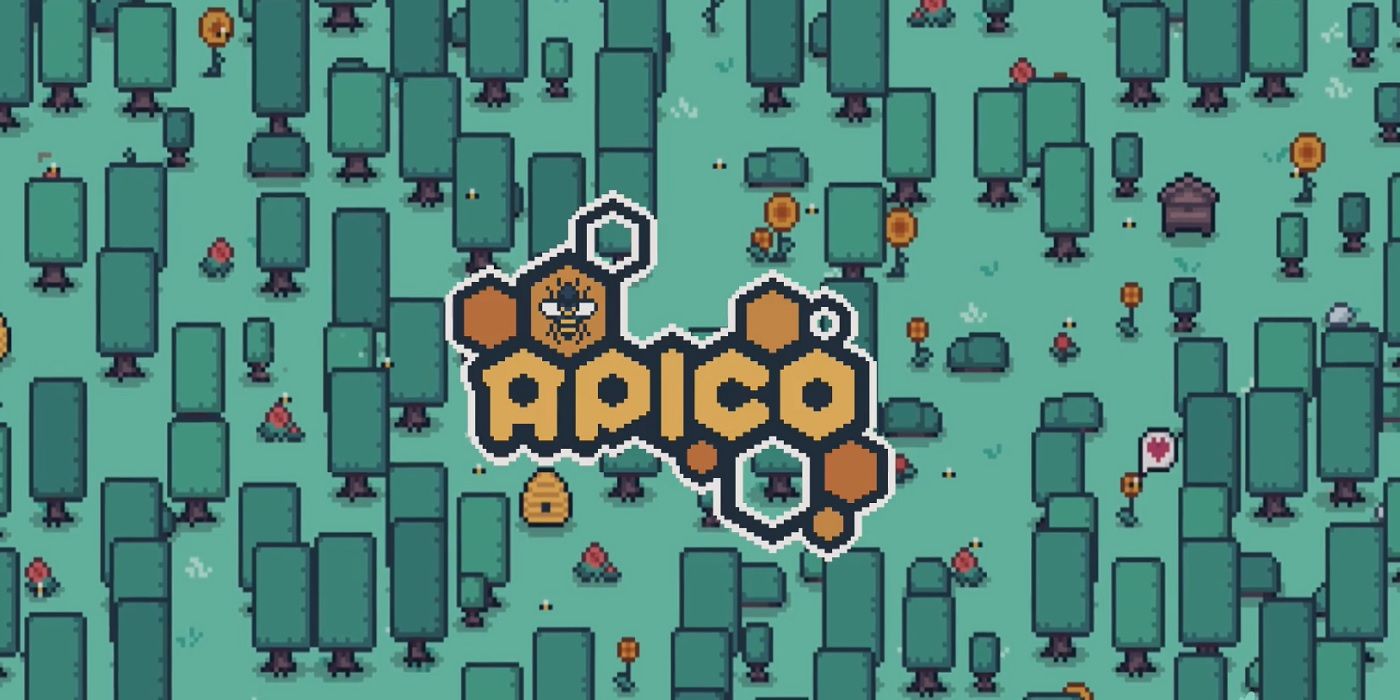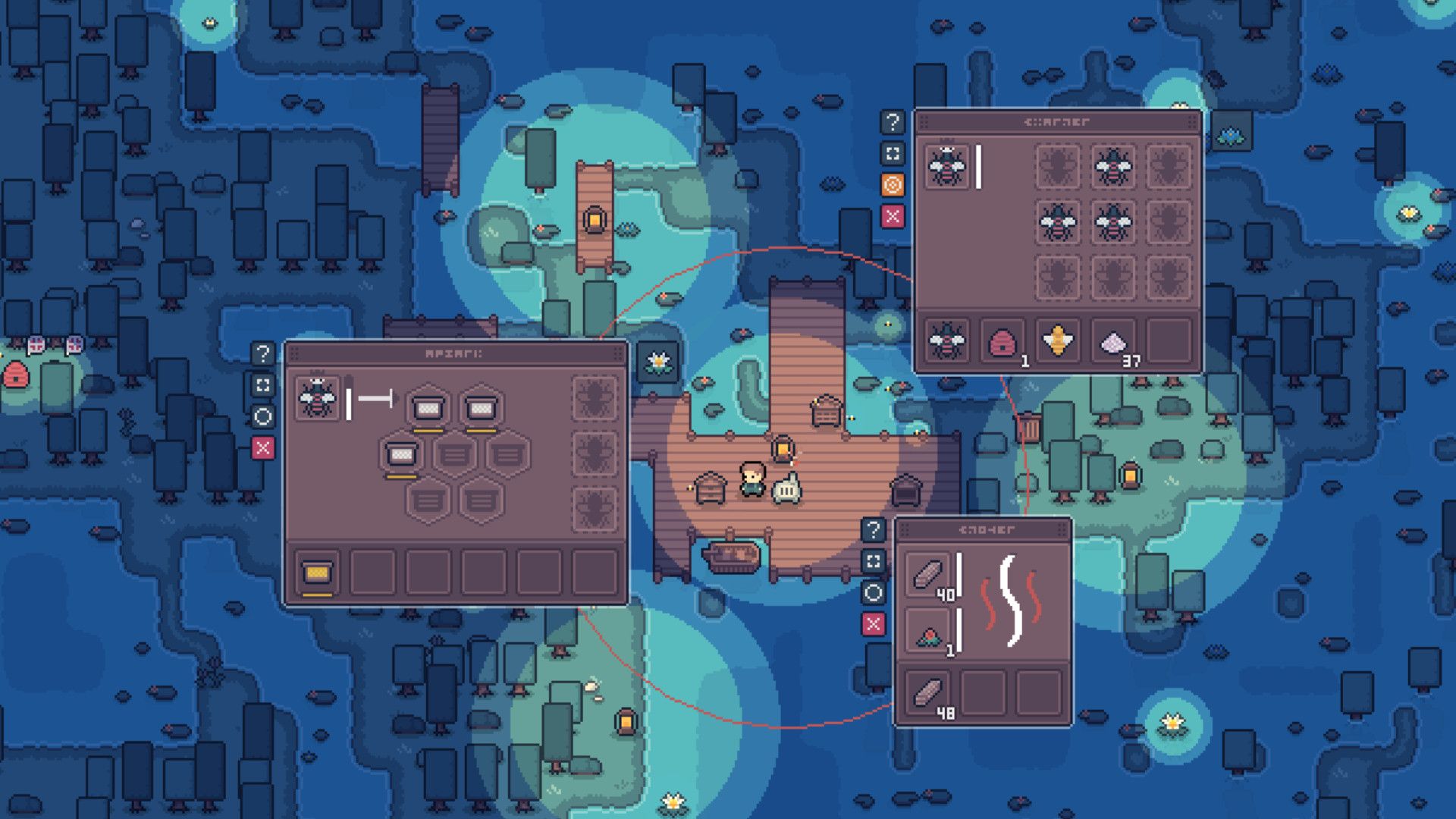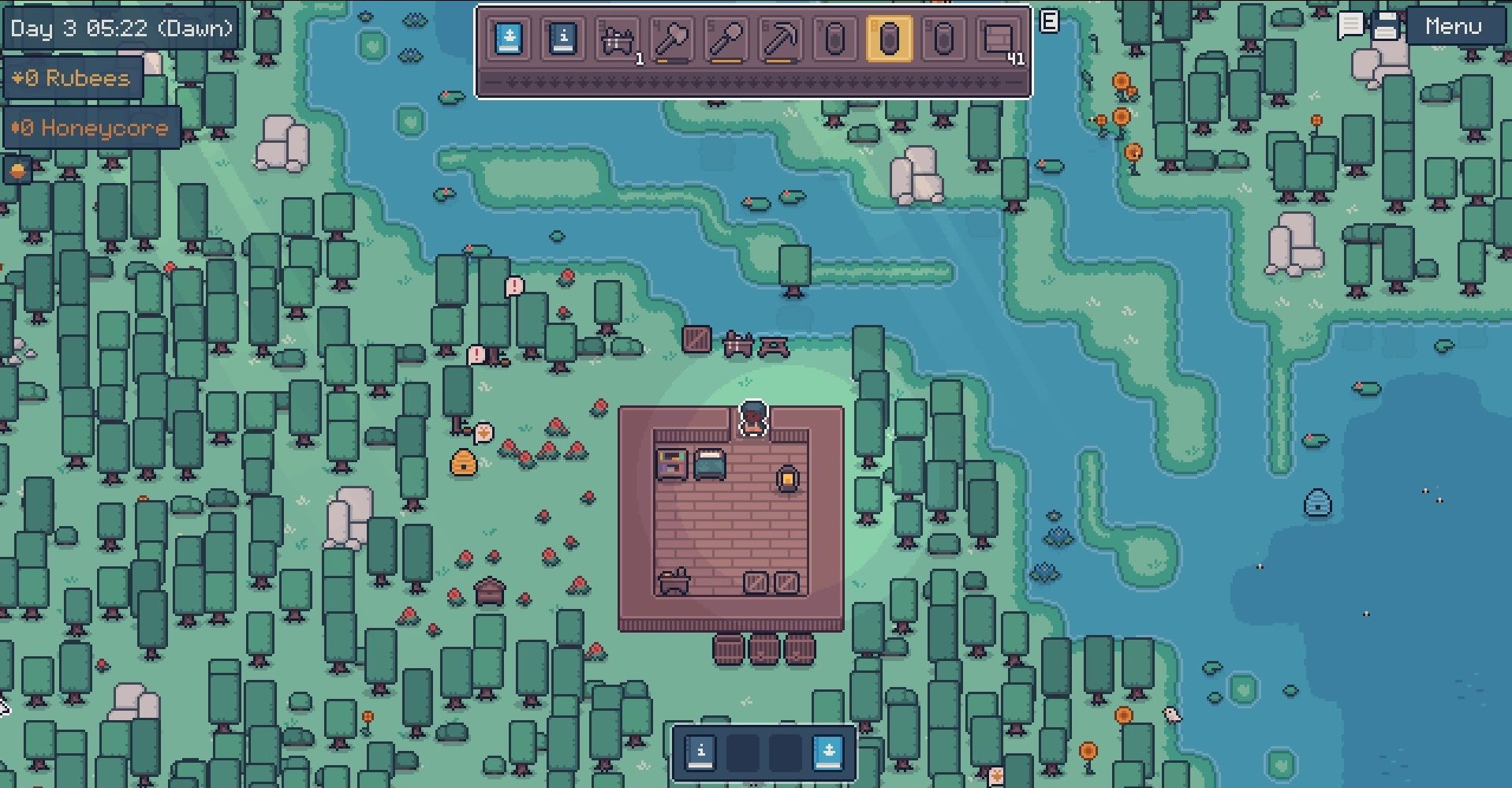APICO is an adorable indie beekeeping simulation game developed by TNgineers and published by Whitethorn Games for PC on Steam. With pixelated graphics similar to Stardew Valley and intricate gameplay that will appeal to fans of Minecraft, APICO encourages players to learn about the benefits of bees, build a bee-product empire, and fill the biomes of the game with diverse bee species. APICO is an excellent example of well-developed gameplay and interesting, educational mechanics.
Like the premise of pixelated simulation games like Littlewood or Stardew Valley, APICO's protagonist leaves the big city life behind to return to Port APICO. The tiny town is inhabited by just a handful of NPCs, including the protagonist's grandmother, with other NPCs found hidden around the diverse islands surrounding the main area players begin at. As the player learns more about bees and begins restoring different species, the townsfolk open up and begin to trust them, offering engaging dialogue that helps build relationships.
To get started in APICO, players will need to raid the various storage boxes found in the town for a base set of tools and items, as well as take advantage of the pre-built crafting tables found in the homes of NPCs. After amassing enough wood and a crafting table, players can then move away from the town and carve out a portion of the forest to build a house. Similar to Minecraft's building mechanics, players will be able to lay down flooring and walls to create a unique forest home of any size. Additionally, the outside area of the player's home will need to be cleared for the numerous crafting tables and beekeeping equipment pieces that will be built as they progress.
APICO offers a wide variety of tools players will need to build to successfully manage their beekeeping project. This includes Apiaries, Sawbenches, Uncapping Benches, Extractors, and many more useful machines. Crafting is well balanced in APICO, requiring players to think carefully about the wood they have on hand, the resin they have collected, and the honeycomb they have harvested from wild beehives. Even after getting established, it is important to have a good supply of crafting resources on hand, as important items like Apiary Frames must be replaced regularly. Because many crafting benches may be needed at a time, APICO's crafting system allows players to keep multiple crafting windows open at once, streamlining the process of moving resources from one bench to the next.
Because APICO has many complex systems for players to learn, a quest book is included to help walk players through the essential mechanics of the game. Like Minecraft mods that include quest books, these achievements give players a clear walkthrough of each piece of equipment or new process, and then a goal to complete. Once players have finished the objective, they receive a resource reward to help build their beekeeping project. While the quests are a great way to get started in APICO, the addition of an advanced quest book with new goals could be fun for those who enjoy task-based gameplay, as the primary quest book can be completed with relative ease.
For those who enjoy winemaking in Stardew Valley, APICO's Apicola system will likely be an exciting project. As players collect honey from a variety of bees living in Apiaries, they can transfer that honey to a Fermentor to create Apicola. This can then be bottled and sold to the NPCs in town for a good profit. Apicola and the byproducts extracted from Apiary Frames are the primary sources of income for players, and the Rubees earned from selling can be used to buy non-craftable items like backpacks and boats, which are needed for exploration outside of the primary island of Port APICO.
However, the most rewarding process of APICO is the bee breeding and conservation mechanics players will begin using early in the game. In order to restore the bee populations of APICO, players will need to crossbreed the wild bees found around islands to create new breeds that have become extinct. The bee breeding mechanics are complex, with bees possessing genetic markers that make new hybrids possible, as well as traits for productivity, lifespan, and fertility. Players can use the Predictor to look at the genetic traits of queen bees, while the Microscope can give more details about a specific bee species' traits. The complex mixture of possibilities makes breeding bees a rewarding and exciting process for players.
Once a player has discovered a new bee species and has raised enough extra bees, the new species can be released into the wild to help restore the wild bee populations found in APICO, giving players the ability to affect the environment of Port APICO, and rebuild lost bee population. APICO is a great game for bee and simulation fans of any age. The clear directions and interesting facts make it a great choice for kids wanting to learn more about conservation. It is also complex enough to appeal to fans of relaxing simulation games like Minecraft. Those looking to learn more about bees, conservation, and genetics will likely enjoy the colorful world and endearing narrative of APICO, making it a great adventure for any player.
APICO releases on May 20, 2022, for PC via Steam. Screen Rant was provided with a Steam code for the purpose of this review.



